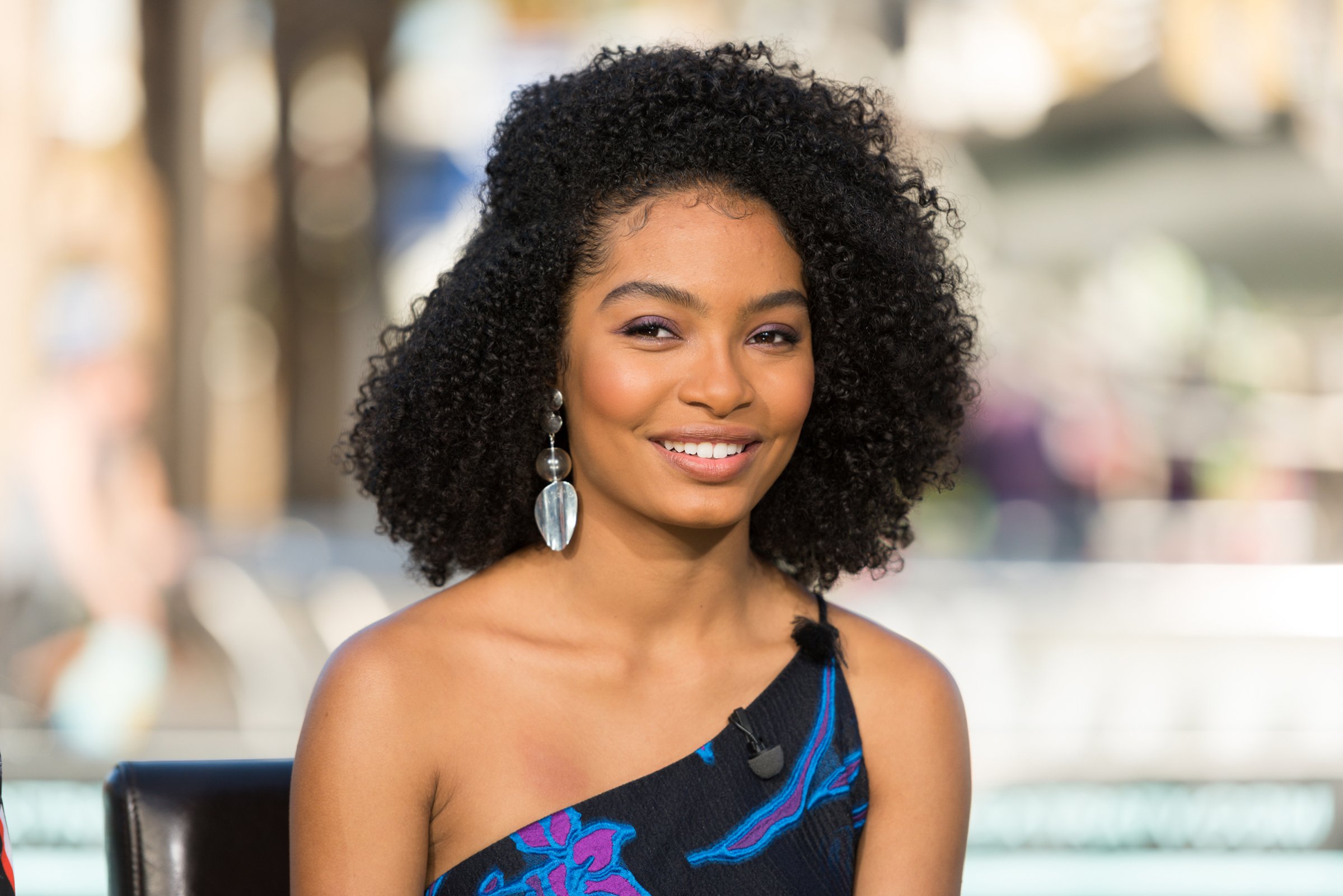
Most teenagers would trade their smartphones for the opportunity Yara Shahidi is getting: a trial run at her first few months of college. The actor who plays Zoey, the eldest daughter of the Johnson family on the ABC sitcom black-ish, will star in a spin-off, grown-ish, about a group of students at a fictional California college. The show launches on Jan. 3 on Freeform before Shahidi heads off to Harvard in real life next fall.
black-ish has struck a balance between a nuanced treatment of issues like race and class and the tonal levity required of a traditional family comedy. On grown-ish, Zoey will navigate a whole new set of questions for a different generation: Does hooking up mean kissing or sex? Which pronouns do her friends prefer—him? Her? Them?
They’re urgent questions for Zoey, who may be popular and savvy on social media but has previously led a sheltered life. Not so for Shahidi, who at 17 has become one of the leading voices of Generation Z. The daughter of an Iranian cinematographer and a black actor, Shahidi hails from a politically conscious family. Her grandfather was involved in the civil rights movement, and she was raised on a diet of James Baldwin. Shahidi started acting in commercials when she was just 6 months old. Since black-ish premiered in 2014, she’s used her status as a rising star to bring attention to issues like Black Lives Matter and encourage girls to study science and technology. Capitalizing on her platform for change is important to Shahidi. “The red carpets and the nice clothes can all feel pointless with every-thing else happening in the world,” she says.
Social media has played an integral part in her activism. Earlier this year, when President Trump first proposed restrictions on immigration from predominantly Muslim countries, Shahidi posted an emotional tribute to her parents’ love story on her Instagram page, noting that she is a product of “black and Iranian love.” “Immigrants don’t threaten safety—stereotypical narratives that promote hate do,” Shahidi wrote. Her use of social media helped earn her an NAACP Image Award when she was just 15 and the attention of First Lady Michelle Obama, who wrote her a college recommendation letter.
Shahidi has sworn to work only on projects that address social issues. grown-ish, which was created and produced by black-ish creator Kenya Barris, is no exception. “I fervently believe that there’s no room for wasted media in this sociopolitical age,” Shahidi says. “It’s important that we understand the impact that each story we tell is making on the community that we represent.” That’s especially true of portrayals of young women. “The narratives we typically tell about young women of color are either being downtrodden or being so superhuman that it’s unrelatable. What Kenya has done in both black-ish and grown-ish is have characters who are thriving but still have moments of uncertainty and realness.”
While black-ish was created with the whole family in mind, grown-ish was built for a slightly different demographic. “It’s definitely edgier,” says Shahidi. “It’s called grown-ish for a reason.” Like most teens her age, Zoey will confront social pressures around sex, drugs and alcohol. (“There is some of Zoey in Yara and Yara in Zoey, but Zoey dabbles in things Yara doesn’t mess around with,” Shahidi says.) However, grown-ish is no after-school special. Zoey will also have to develop her political identity: when the university threatens to shut down a black dorm, Zoey must argue that students creating housing for different groups on campus is “congregation, not segregation.”
The spin-off comes at a time of upheaval at many colleges. Campuses are getting more political as students deal with the trickle-down effect of Trump’s policies, like whether or not some international students will still be able to study in the U.S. or how universities deal with sexual assault. “I think we lived in a progressive bubble,” Shahidi says. “And with this Administration, there’s no option to be non-political anymore. That’s pushed people to develop a political identity at a much younger age. You see that in college.”
That’ll be no sweat for Shahidi. She plans to double-major in sociology and African-American studies when she gets to Harvard. She can’t vote yet, but she’s already built up a formidable résumé.
More Must-Reads from TIME
- Introducing the 2024 TIME100 Next
- The Reinvention of J.D. Vance
- How to Survive Election Season Without Losing Your Mind
- Welcome to the Golden Age of Scams
- Did the Pandemic Break Our Brains?
- The Many Lives of Jack Antonoff
- 33 True Crime Documentaries That Shaped the Genre
- Why Gut Health Issues Are More Common in Women
Write to Eliana Dockterman at eliana.dockterman@time.com